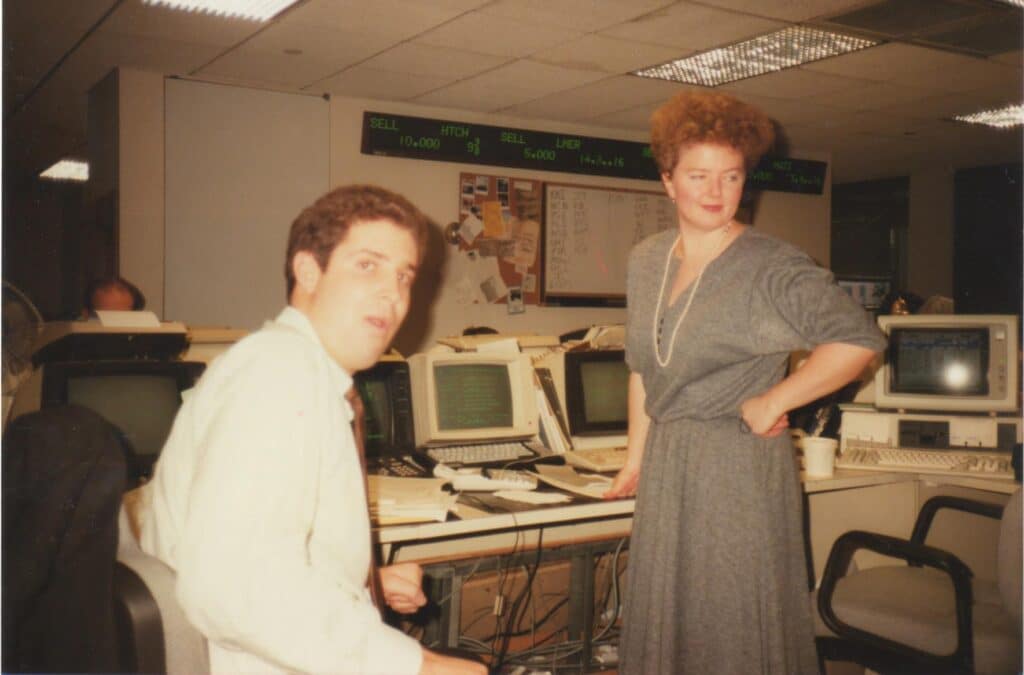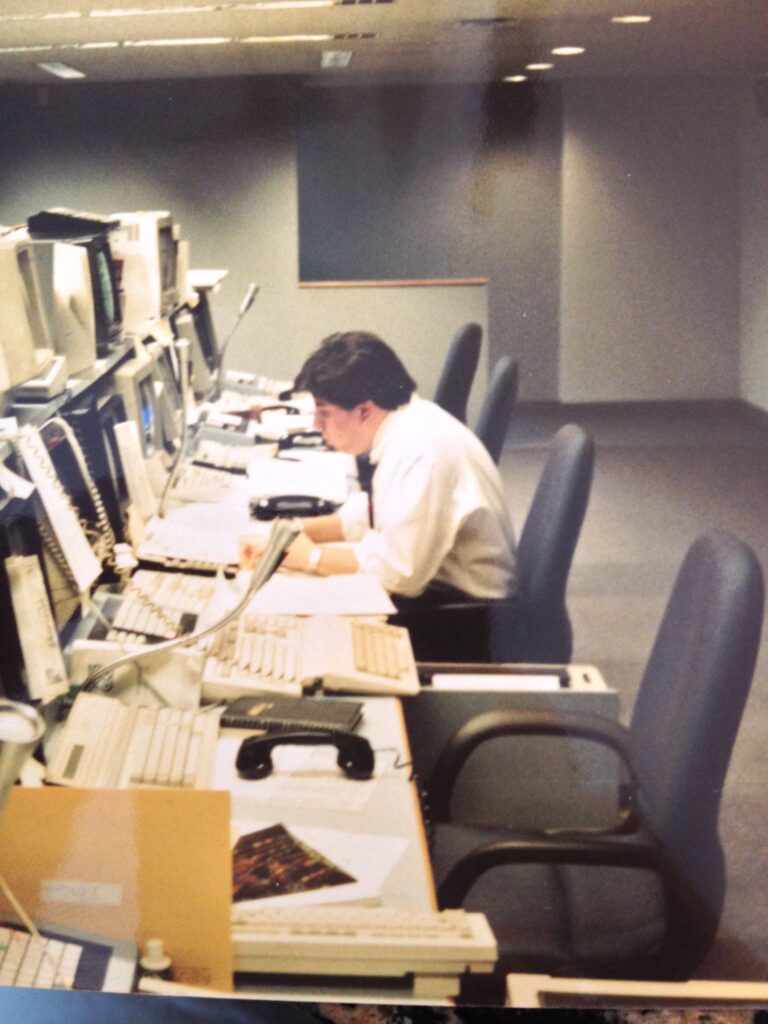FLASH FRIDAY is a weekly content series looking at the past, present and future of capital markets trading and technology. FLASH FRIDAY is sponsored by Instinet, a Nomura company.
Hired by Instinet’s then-CEO Bill Lupien as a junior salesperson fresh out of college in 1984, Doug Atkin trekked off to Chicago for a month with the mission of selling electronic trading terminals to options markets makers.
Suffice to say he wasn’t warmly received.
“The technology went over on the floor like a bacon sandwich at a bar mitzvah,” Atkin told Traders Magazine. “I literally came back from the trip and said ‘Mr. Lupien, I didn’t realize there was an expletive in front of our company name.’”

“People did not want to use it. But after a while, as much as people hate change, they saw that this could improve the markets by bringing in more liquidity, which would help them make more money,” said Atkin, now co-founder of venture capital firm Communitas Capital Partners. “Bill had a grand vision. He was way ahead of his time. He had a big influence on me, on others, and on the market.”
William Lupien passed away on April 15 at age 79. Lupien had a long and storied career as an electronic trading pioneer, starting as a specialist on the Pacific Exchange in 1968, and later designing and developing trading systems and leading brokerage and technology firms. In 1999 he was featured by CNBC as one of five people who had changed the course of the securities industry in the 20th century.
Traders Magazine caught up with Atkin, Margaret (Peggy) Rappaport, and Richard Schenkman, all of whom worked for Lupien when he was CEO of Institutional Networks Corp. (now Instinet) in the early-to-mid 1980s.
Rappaport joined Instinet in 1983 as a temporary receptionist, company employee #35; the plan was to earn some money while taking a two-week break from writing her doctoral thesis. Rather than two weeks, she ended up staying at Instinet more than 1,000 weeks, until 2002, working her way up through a variety of senior positions including manager of international business, VP broker-dealer sales and trading, and finally EVP global marketing, branding, communications, and corporate development.
‘Culture of Enthusiasm’
Lupien “truly visualized the future of the securities industry,” Rappaport said. “In the five years that Bill was at Instinet, he oversaw the expansion of the technology for both the buy and sell side, laid access to the global marketplace through Reuters, and assembled a cadre of people whose ideas he encouraged, and who worked individually and collectively to expand the reach of the company, advance the technology, and pursue and extoll the corporate mission.”
Aside from the transformative effect on industry, the Lupien years “were just so much fun,” recalled Rappaport, who now lives in the Hamptons on New York’s Long Island and focuses on giving back. “The team that was slowly but surely brought in was all younger people, all hungry, and all with good ideas. We would sit around the trading room after hours, and just have so much fun. Bill instilled a culture of enthusiasm, which I think was as important as his vision because that is what carried the vision forward.”

Lupien purposely hired freshly minted college graduates who were blissfully unaware of the conventional wisdom at the time, which was that electronic trading systems were white elephants.
Instinet “was a challenge to the Wall Street structure,” said Richard Schenkman, who joined the company in 1984 out of the University of Buffalo, stayed for 16 years and became chief operating officer. “He hired a bunch of young people who came on without any prior baggage of how Wall Street operated, so he could develop us into people who could withstand the pressures of what Wall Street would inevitably try to prevent.”
Lupien transformed Instinet from a buy-side-to-buy-side-only platform by adding sell-side liquidity, in a way that minimized information leakage and transaction costs. “Prior to Instinet, the only option was to call a broker, and that was fraught with conflict,” Schenkman said. “The vision was to give control back to the institution by allowing the institution to access the market — natural liquidity, institutional liquidity, and sell-side liquidity — anonymously.”
“Bill had the knowledge of market structure, the courage to make large bets, and the vision to turn the promise of Instinet into a reality,” added Schenkman, who now lives in Utah where he is managing partner at a private equity firm and is on the board of Pragma Securities. “Peggy actually later articulated this and turned it into a tagline of ours — ‘changing the way the world trades’.”
Doug Atkin quickly got past the eye rolls from the Chicago traders — in fact, he liked the job so much that he stayed for almost 18 years and rose to CEO.
“Bill created a very mission-driven organization, made to change the way people trade stocks and put more money in investors’ pockets,” Atkin said. “He can be credited with a lot of innovation.”
Atkin said Lupien’s influence extends to his present role at Communitas Capital, which invests in and partners with fintech and marketplace companies. Other co-founders are Tom Glocer, former CEO of Thomson Reuters, and Duncan Niederauer, former CEO of NYSE.
“Our investment thesis is that the equities markets were the first to go through this transformation; some other industries, even 35-some-odd years later, still have not gone through the transformation,” Atkin said. “What we look for are areas in the capital markets, and also other areas of the economy, where in some ways what Bill created is taking place.”





